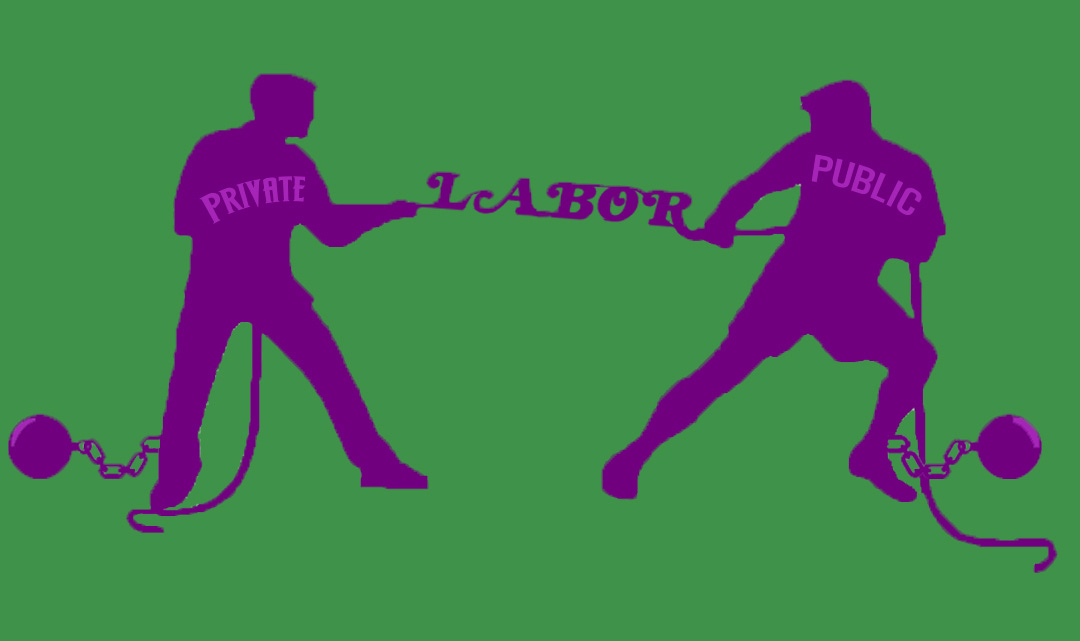
America practices a politic of distraction by condemning parts so that it can preserve the whole. Political fetch if you will. Focus your ire on police who disproportionately arrest Black people but not the prosecutors who choose to prosecute all those cases. Be mad at the public defenders who advise their clients to take “bad pleas” but not the prosecutors who make the offers or the judges who threaten to do worse if convicted at trial. Be angry at the jury that convict but not the legislators who created the mandatory sentencing. Private prisons are bad because they create an incentive to incarcerate people for money, but not prisons overall.
I never refer to the American legal/criminal system as the justice system. But that refusal isn’t a mere personal act of defiance because I don’t believe the system is just— it’s because America’s decision to refer to its legal system that way is intentional and accomplishes something very powerful in our minds.
“The criminal justice system” is a delibrate misnomer that programs us to believe not only that justice is synonymous with police, prosecutors, and prisons; but that the system’s intention is always to bring about justice, even if and when it doesn’t. The result of that underlying belief, is that no matter how many horror stories and injustices we learn about, instead of accepting the system for what it actually does and who it does it to, we instead believe these are mistakes, miscarriages of justice; and that while there are certain parts of the system that are bad, the system as a whole is fundamentally just and necessary to carry out justice—since we believe justice to mean prisons and prosecution in the first place—and thus, it must be maintained in spite of the countless tragedies we twist ourselves into believing are outliers.
The reality, however, is that mass incarceration is slavery. The thirteenth amendment explicitly acknowledges it as such by abolishing slavery except for anyone convicted of a crime. The thirteenth amendment reads:
Neither slavery nor involuntary servitude, except as a punishment for crime whereof the party shall have been duly convicted, shall exist within the United States, or any place subject to their jurisdiction.
In the same breath that the U.S government purported to abolish slavery, they established the means to continue the practice. Carving out an exception to the abolishment of slavery makes it “constitutional,” but it doesn’t make it any less slavery. Yet, people won’t call mass incarceration slavery. They’ll call it “modern day slavery” and other euphemisms and qualifiers, they’ll suggest it’s slavery adjacent, but they won’t plainly call it what it is. Why?
Because once you acknowledge that, you have no moral room left to insist we maintain it whilst pretending slavery is a unanimously condemned event of this country’s past that you’d have never stood by or excused in any capacity for any reason whatsoever had you been alive. In fact, simply perpetuating the idea that today’s Americans would never support slavery is what lends legitimacy to the lie that it no longer exists—because how could we simultaneously never have done something and presently do it.
So instead of calling slavery what it is, we settle for just likening mass incarceration to slavery, so we can condemn it for the few parts we acknowledge resemble slavery, while preserving the system as a whole. The emphasis on just private prisons being bad, as opposed to all prisons, serves the same purpose.
Most Americans won’t consider even decarcerating or closing existing prisons—even infamous pre-trial detention centers like Rikers where people die awaiting trial—let alone abolishing all prisons. They’ll say “We need real criminal justice reform” then oppose even the most modest bail reforms. They’ll respond to tweets calling for the closing of Rikers after the latest pre-trial deaths with, “that’s really sad but we have to put those people somewhere.” They’ll insist on the necessity of prisons, but they will eagerly lament about how private prisons are bad. They enthusiastically invoke kids for cash as a shining example of how judges, prosecutors, and prisons only got corrupt once privatization got involved. They’ll tell you it’s private prisons that make money off prison labor and incentivize the government to incarcerate more people. All the while, about 2 million people are incarcerated in America. Those incarcerated people, held in public and private prisons, are being held involuntarily and forced to perform labor that produces America over $11 billion each year.
Slavery is a system in which people are involuntarily deprived of their freedom and forced to perform labor for another’s gain. Make no mistake about it, mass incarceration is slavery.
The danger in carving the issue up into parts so that we don’t have to face that reality is that it doesn’t just preserve the system, it allows it to expand. Whilst we’re distracted pretending the problem is just private prisons, they’re busy building and filling hundreds of public prisons for all the same reasons private prisons exist, that do all the same things private prisons do. Human rights abuses and depraved indifference to basic humanity, are no more or less present in the cages we lock each other in at private prisons than they are at public ones.





I am so thankful we have your voice. It's so clarifying and so powerful.
I agree 100%. Let's call it what it is...slavery!